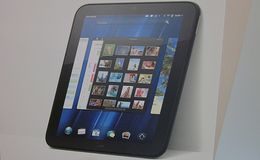
The job market in 2025 is more competitive, fast-paced, and digitally connected than ever before. As industries continue to evolve, employers are looking for more than just degrees or years of experience. They want professionals who can lead, adapt, and deliver real value. If you’re aiming to stand out, you need to focus on building the right skills for today’s demands.
Whether you’re a recent graduate, an early-career professional, or someone considering a career shift, now is the perfect time to sharpen the skills that employers are actively seeking. While the workplace continues to embrace new technologies, human-centered abilities and strategic thinking are just as important. The good news? You don’t need to learn everything at once. The key is knowing where to focus and how to get started.
Let’s begin with a skill set that continues to be essential across industries.
Leadership and Strategic Thinking
Employers today are eager to hire individuals who can do more than just follow directions. They’re looking for people who can lead with purpose, plan, and make informed decisions. Leadership in 2025 means managing people, yes, but it also means guiding projects, navigating uncertainty, and influencing outcomes in meaningful ways.
Strategic thinking is about seeing the bigger picture. It’s the ability to connect the dots between departments, anticipate future trends, and align actions with business goals. Whether you’re working in marketing, finance, tech, or operations, these skills can set you apart.
One of the most effective ways to develop leadership and strategy skills is by pursuing a full time MBA. This kind of program immerses you in real-world business challenges, helping you strengthen your analytical thinking, team management, and problem-solving abilities. You also gain hands-on experience through consulting projects, case studies, and collaboration with peers from diverse professional backgrounds, all of which prepare you to lead with confidence in a global business environment.
Digital Fluency and Tech Adaptability
As workplaces become more tech-driven, digital fluency is no longer a “nice-to-have. ” It’s a must. It goes beyond knowing how to use a spreadsheet or send an email. It means being comfortable with tools that support remote work, data analysis, and workflow automation. Even if your job isn’t in IT, chances are you’ll need to interact with digital platforms regularly.
Employers value candidates who can quickly adapt to new technology, understand how systems work together, and troubleshoot when something goes wrong. To build this skill, start with free or low-cost online courses on platforms like Coursera or Udemy. Learn how to use tools like Slack, Trello, Salesforce, or even basic coding concepts, depending on your field.
Being tech-savvy gives you the flexibility to work across roles and industries, and it shows hiring managers that you’re willing to evolve with the job.
Communication and Collaboration Across Channels
In 2025, strong communication is more important than ever, especially in hybrid and remote work environments. Employers need professionals who can clearly express ideas, listen actively, and collaborate across time zones and platforms. It includes writing concise emails, giving presentations, and navigating virtual meetings.
Collaboration is about more than just teamwork. It’s about knowing how to work with people from different backgrounds, roles, and communication styles. Being open to feedback, resolving conflicts quickly, and keeping projects on track are all part of the skill set.
To improve, practice speaking up in meetings, join networking groups, or take a public speaking class. Online platforms like LinkedIn Learning offer great resources to help you build both written and verbal communication skills that shine in any setting.
Data Literacy and Analytical Thinking
Businesses rely on data for everything from setting goals to measuring performance. That’s why data literacy is such a valuable skill. It means being able to read, understand, and make decisions based on data, even if you’re not a data analyst.
Employers appreciate candidates who can back up their ideas with facts. Whether you’re in marketing, HR, finance, or sales, being able to spot trends, interpret charts, and explain findings clearly makes you a stronger contributor.
You can start developing this skill by learning how to use Excel, Google Sheets, or basic business intelligence tools. Free resources and tutorials are widely available, and many are tailored to beginners. The more confident you become with data, the more you’ll be able to make informed decisions at work.
Emotional Intelligence and People Skills
Emotional intelligence, or EQ, is the skill of recognizing and managing your own emotions while also being mindful of the emotions of those around you. It matters in the workplace because emotions influence how teams function, how leaders inspire others, and how problems get resolved.
Employers look for people who are self-aware, empathetic, and good at handling stress or conflict. If you have strong people skills, you’re more likely to lead successful teams, navigate workplace dynamics, and earn the trust of coworkers and clients alike.
To improve your emotional intelligence, start by reflecting on how you react to feedback or stressful situations. Practice empathy by listening without interrupting, and consider reading books or taking online courses focused on interpersonal development. These soft skills can have just as much impact on your career as technical ones.
Creativity and Problem Solving
No matter the industry, creative problem-solving is always in demand. Employers want people who can think outside the box, find new ways to solve challenges, and approach problems from different angles.
It doesn’t mean you have to be a designer or artist. Creativity shows up in how you manage projects, find efficiency, or introduce new ideas. Problem-solving means staying calm under pressure and being resourceful when things don’t go as planned.
To sharpen these skills, take on projects that require you to troubleshoot or innovate. Join brainstorming sessions at work or engage in activities like puzzles, strategy games, or creative writing. The more you practice thinking creatively, the better equipped you’ll be when real challenges arise.
Flexibility and a Lifelong Learning Mindset
In today’s world, change is constant. New tools emerge, job roles shift, and industries evolve quickly. Employers are looking for people who can roll with change, learn new skills, and stay positive in the face of uncertainty.
Having a lifelong learning mindset means you’re open to feedback, curious about new trends, and willing to invest in your growth. It’s what helps you stay relevant and ready, even as the job market changes.
You can embrace this mindset by regularly reading industry news, listening to career-focused podcasts, or setting small monthly learning goals. Treat learning as a habit, not just something you do when you’re job hunting.
The skills that employers want in 2025 reflect a changing world, one where technology, leadership, and adaptability all play a central role. But the good news is that these skills are within your reach. With the right mindset and a willingness to learn, you can prepare yourself for success in any industry.
Start by choosing one area to improve. Whether it’s leadership, communication, or data analysis, every skill you gain brings you one step closer to your goals. The future of work is already here, and you have everything you need to meet it head-on.
SEE ALSO: Leadership in High-Risk Industries: What Sets the Best Apart












